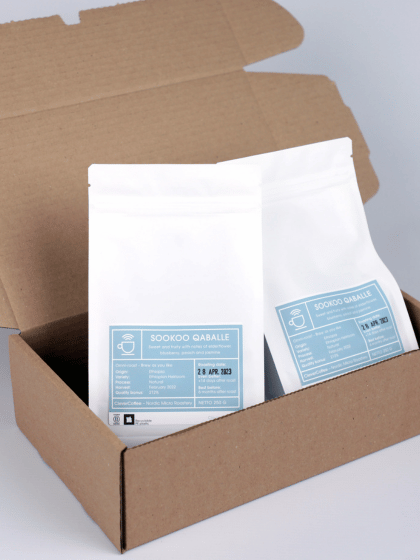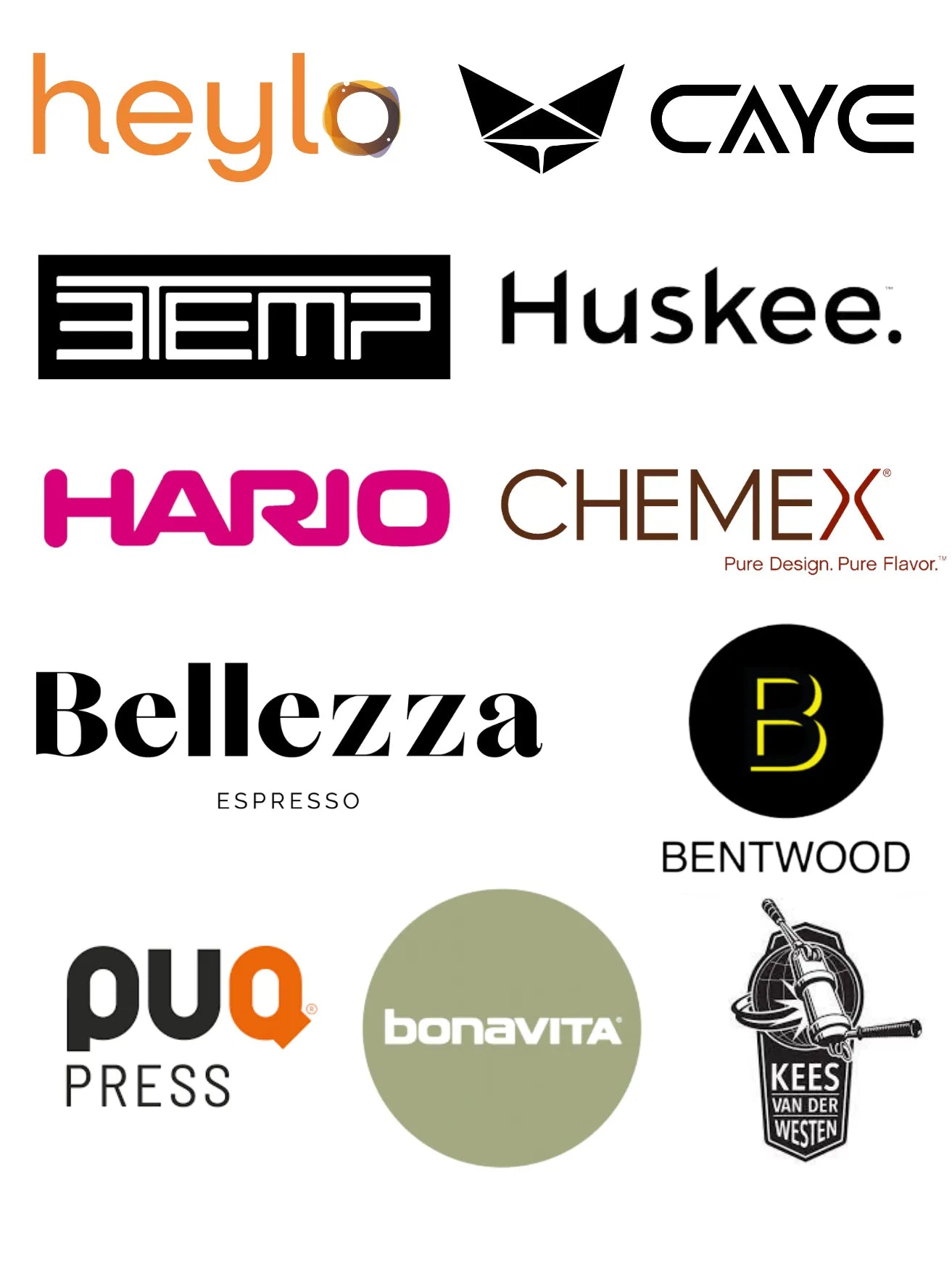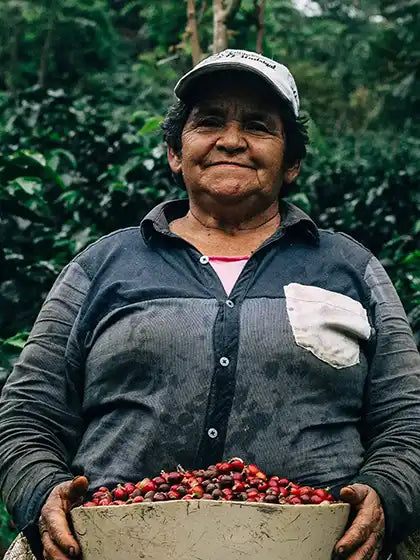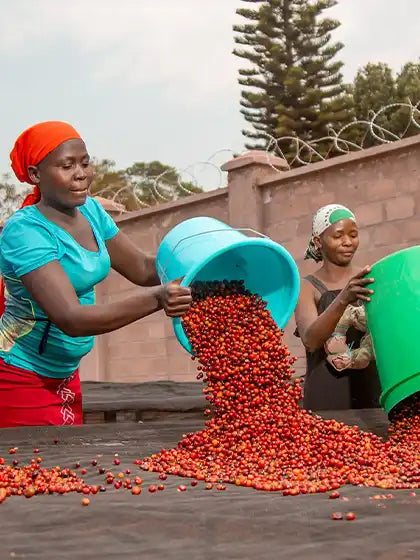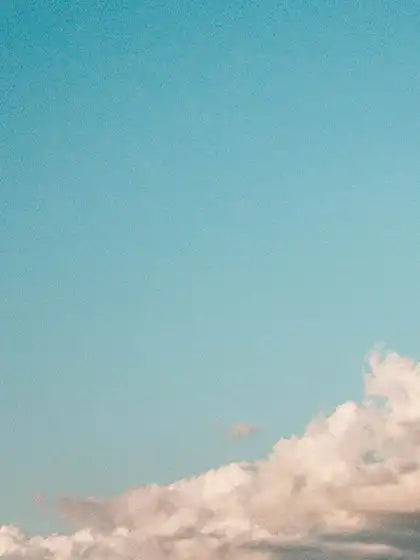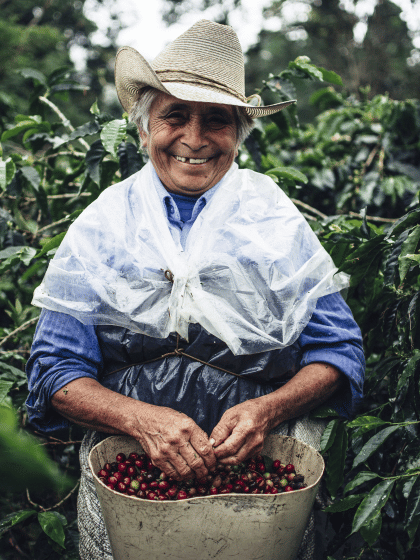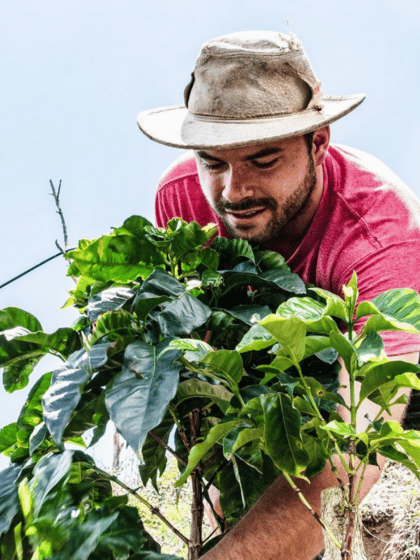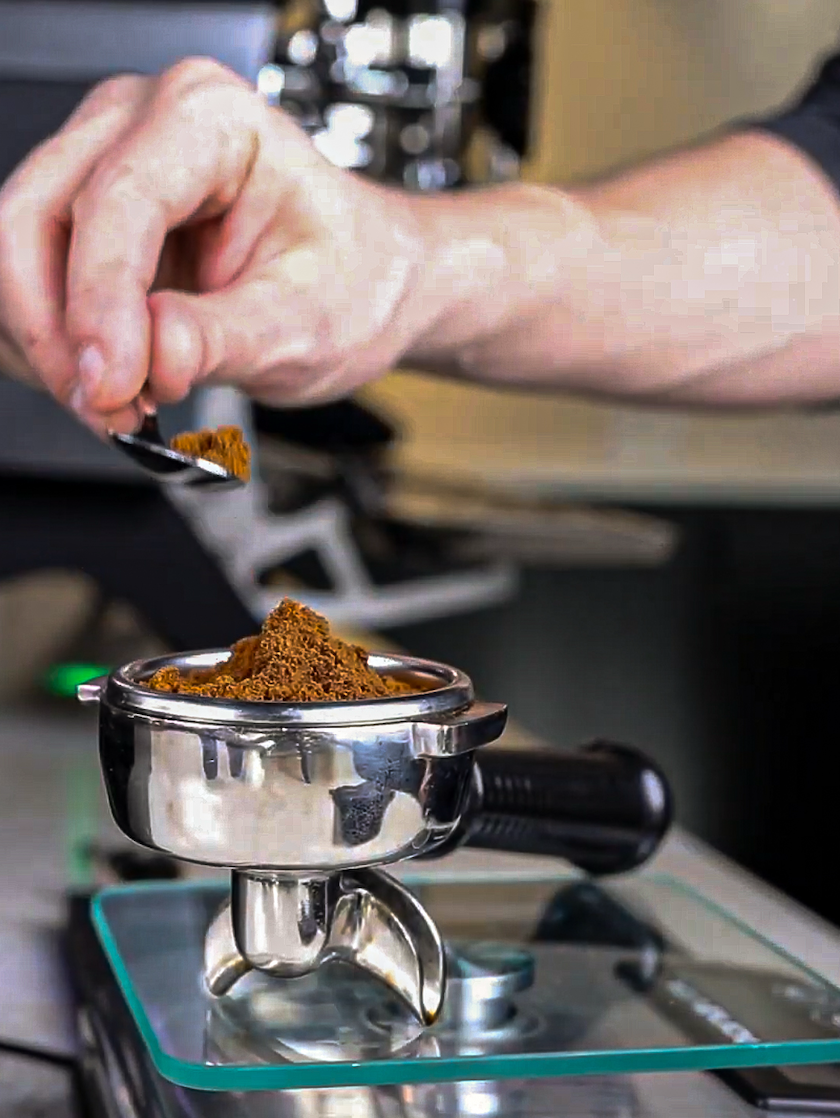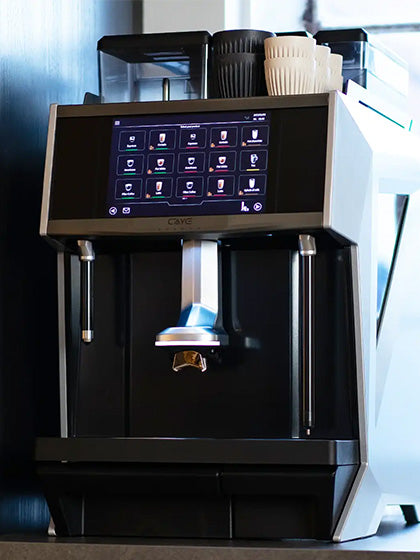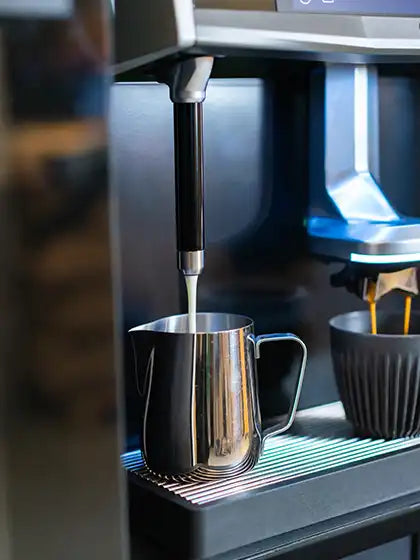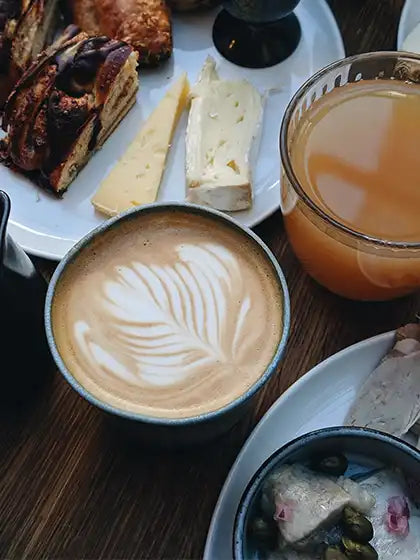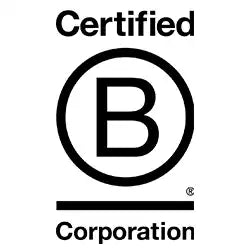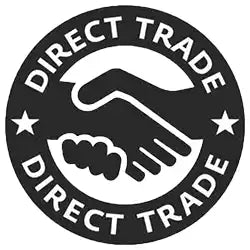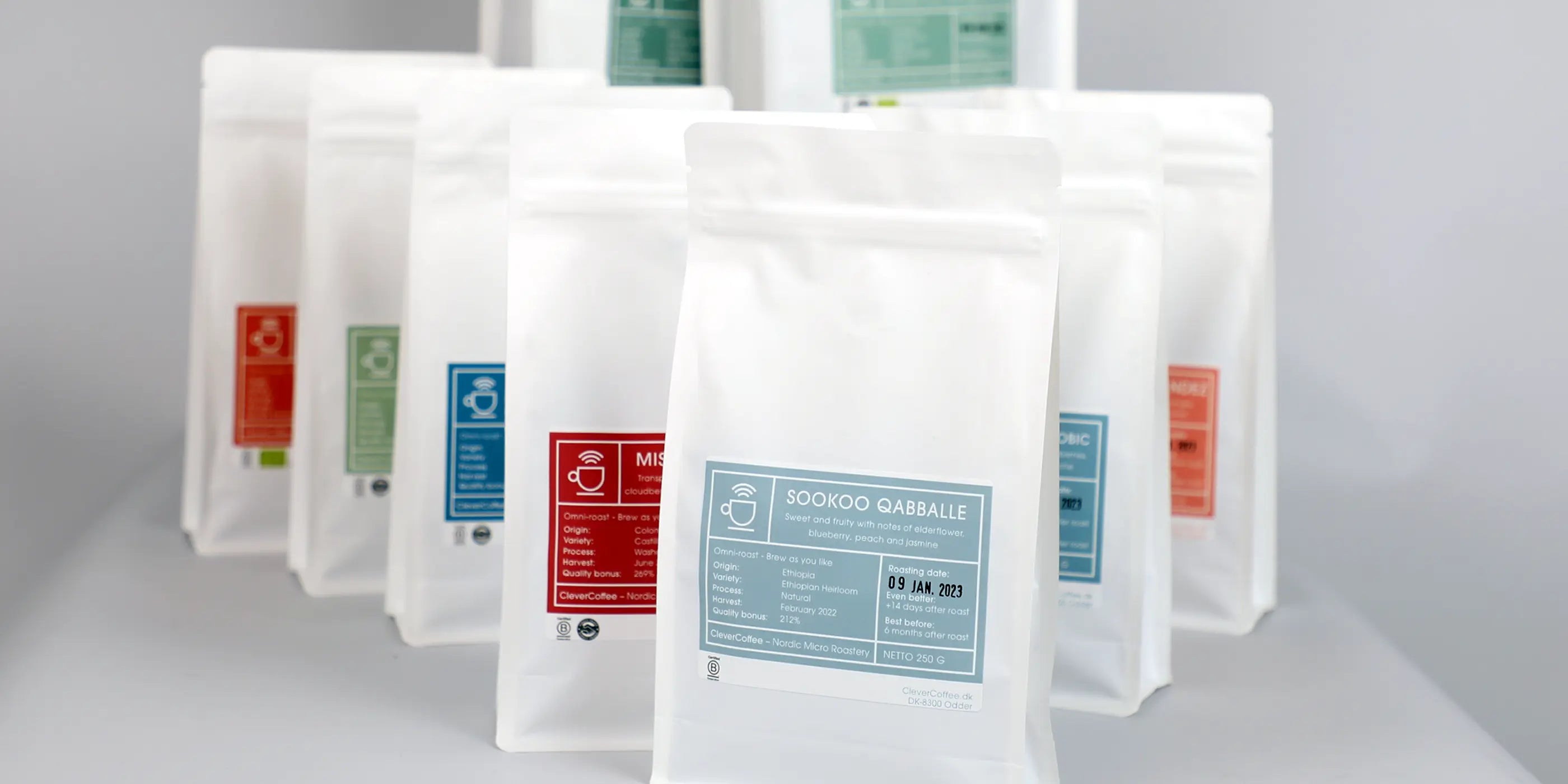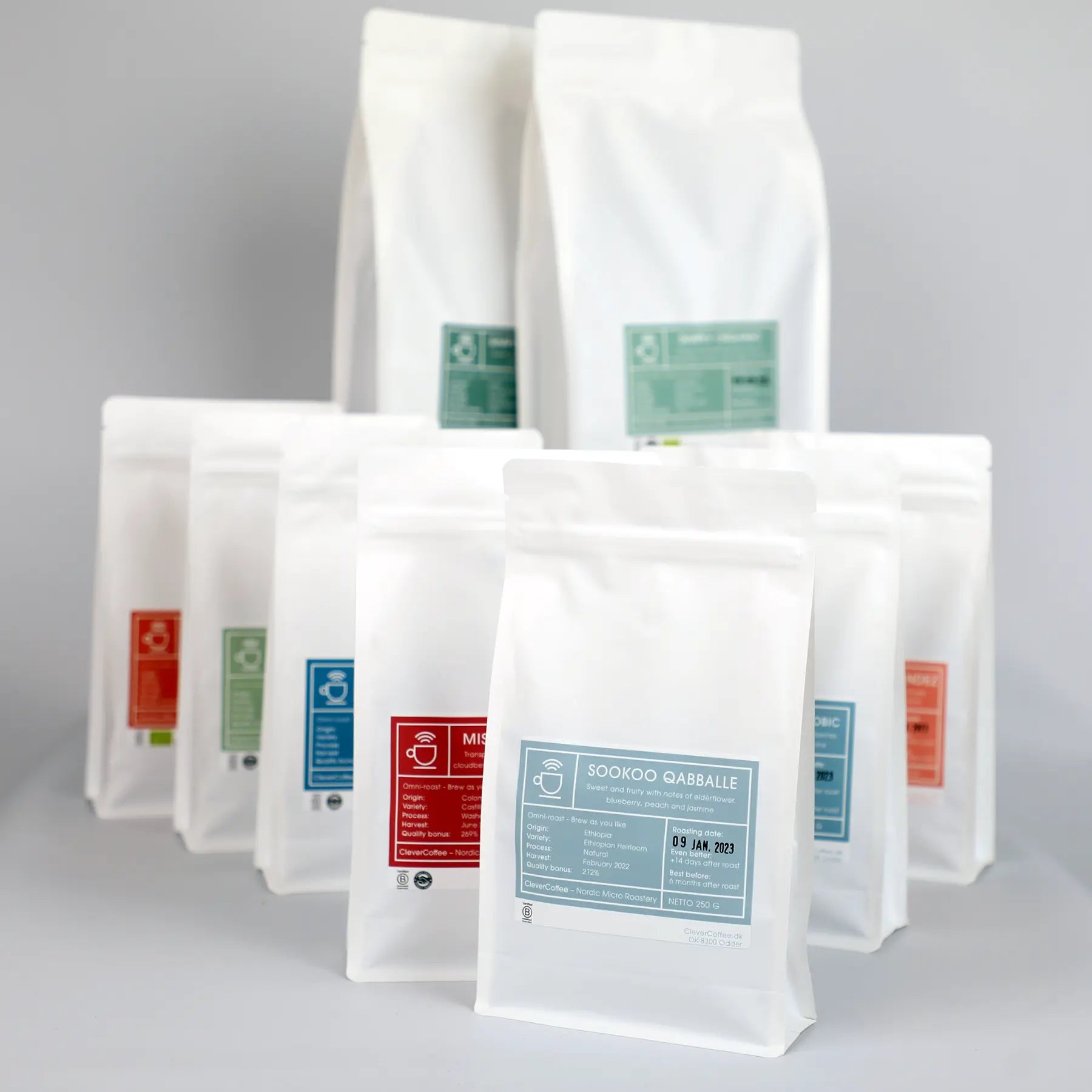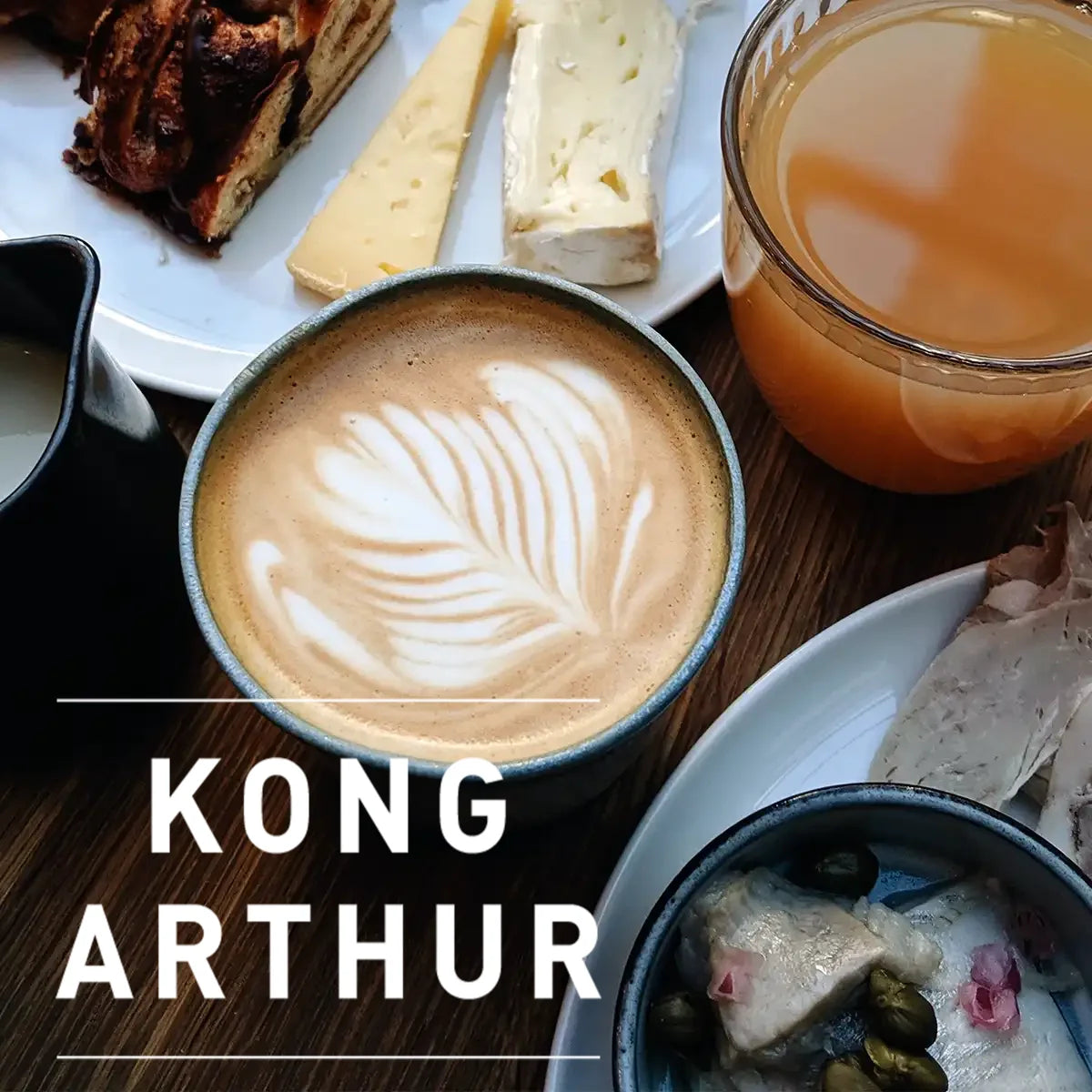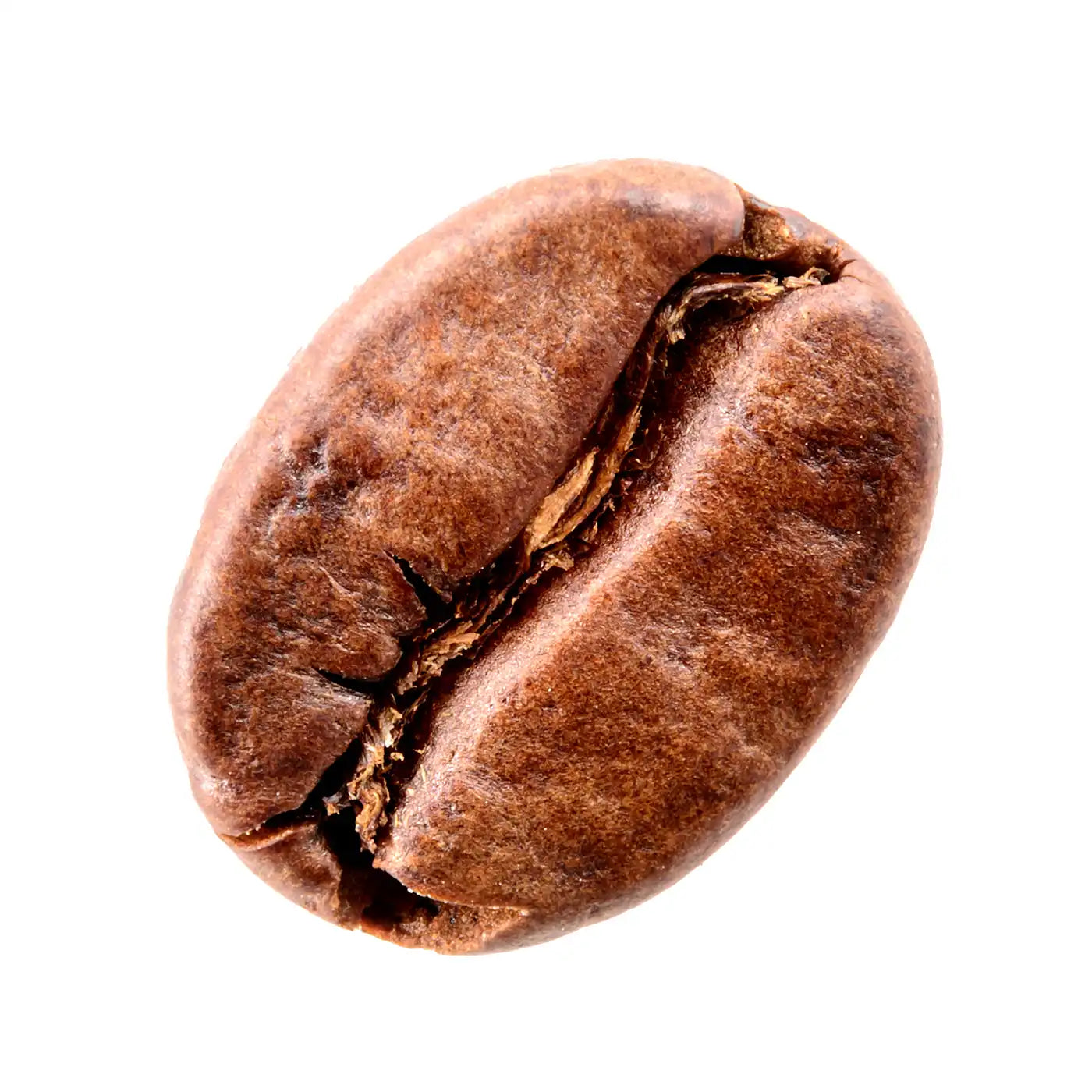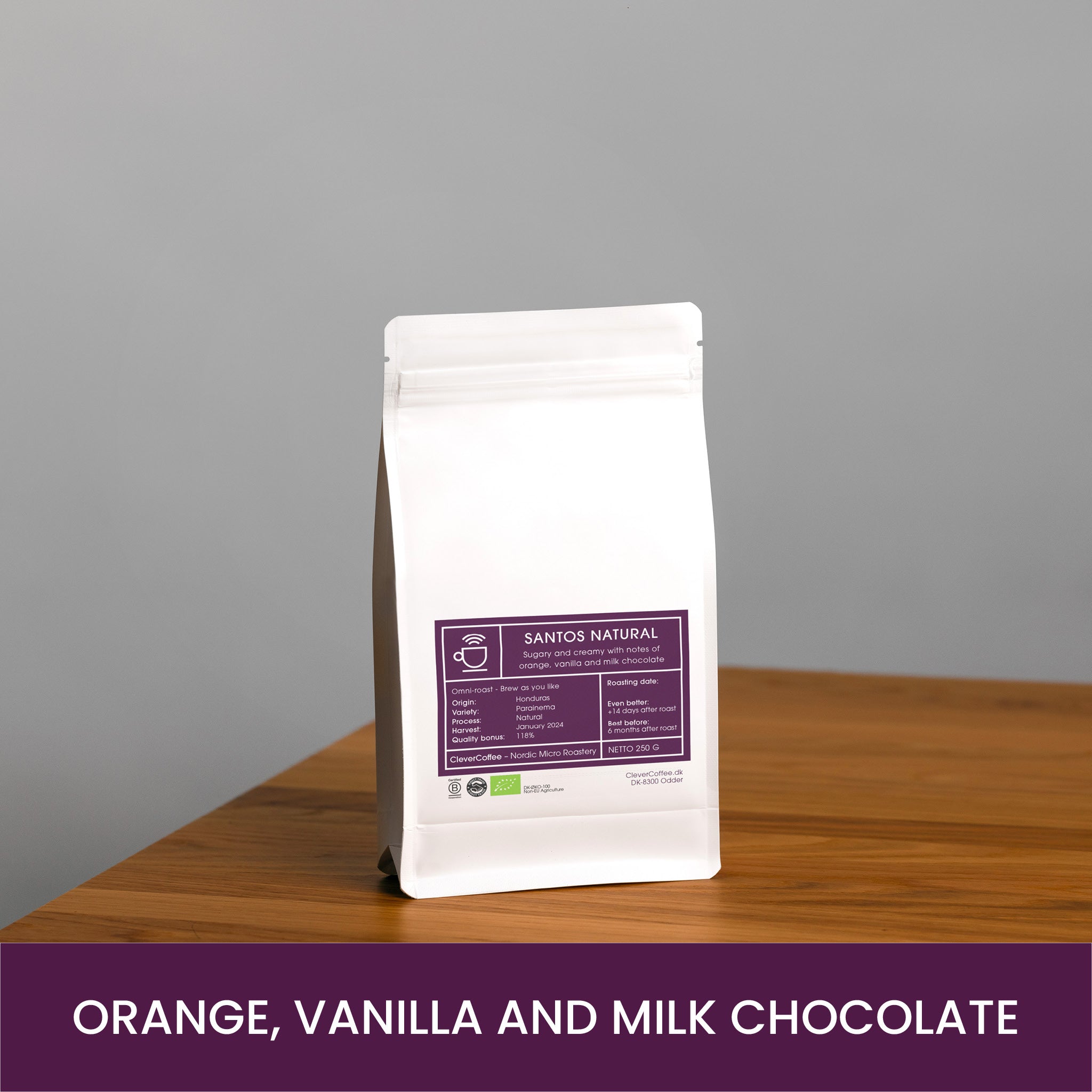
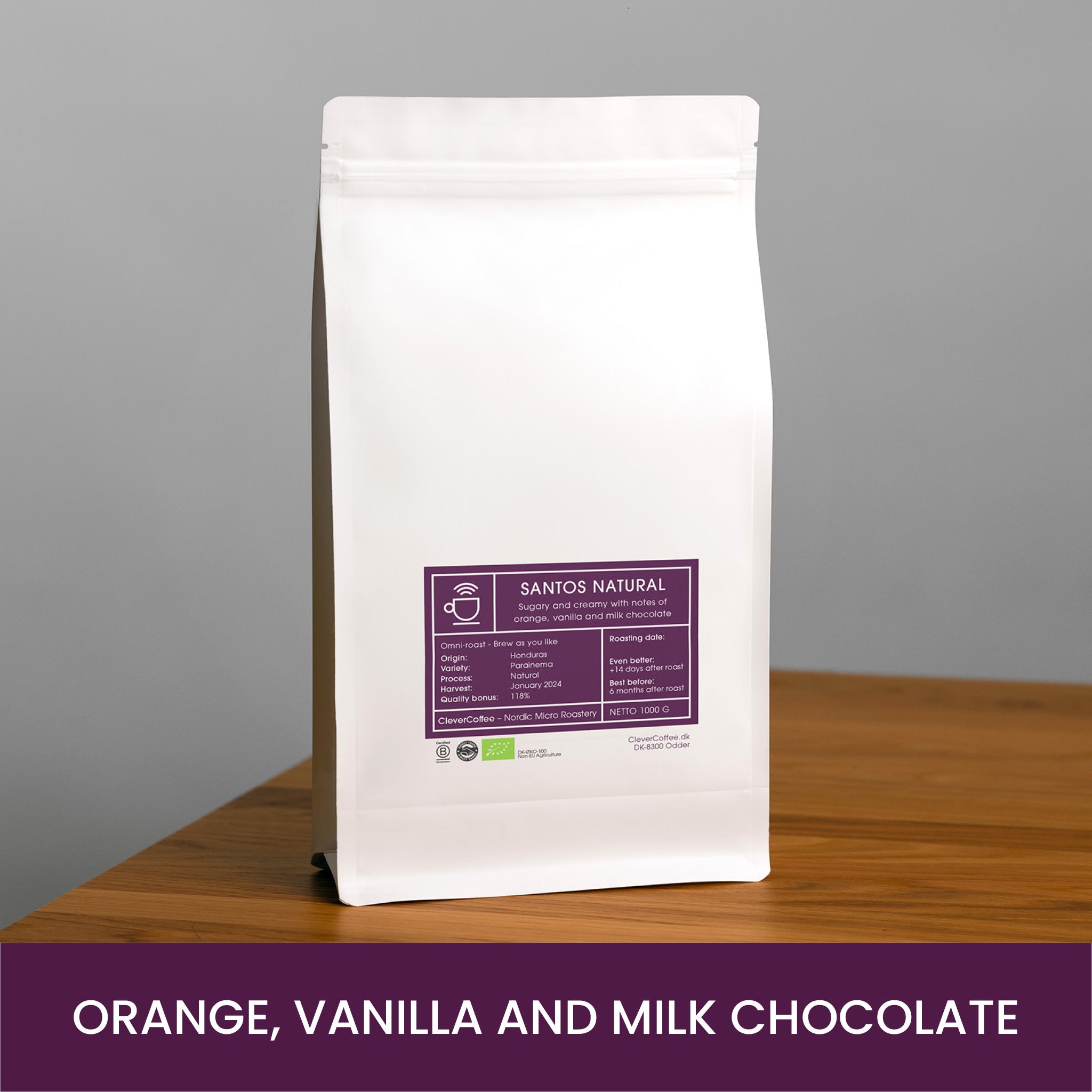
CleverCoffee
Santos Natural - Honduras
Natural Parainema from Honduras. Parainema is known for its good taste and natural resistance to coffee leaf rust, making it a popular choice among coffee producers in the region.
- Origin: Ocotepeque, Honduras
- Coffee variety: Parainema
- Processing: Natural
- Tasting notes: Orange, vanilla and milk chocolate
Omni-roasted coffee beans - brew any way you like
This coffee is certified organic.
...so it is grown in a way that is particularly gentle on nature and people.
What does that mean?
- No synthetic pesticides
- No artificial fertilizer
- No genetically modified organisms (GMO)
The coffee is certified locally where it is produced and subsequently certified here by the Danish Food Agency as DK-ØKO-100.
Organic is not without costs for coffee farmers, who already have very poor conditions. Read here about the dilemma of organic certification.
Documentation
This coffee is grown in agroforestry
This roughly means that the coffee plants are shaded by other trees and plants. Agroforestry is the opposite of what is called “monoculture”, where you have a field that only consists of one type of plant, for example coffee plants.
In a forest farm, the coffee plants are part of a system with animals and plants that live naturally in the area.
There are many different types of agroforestry. There can be different amounts of shade cover, different degrees of diversity in plants and animals, and one can, for example, talk about having several different layers of shade cover, with trees that have their crowns at different heights and thus several layers.
Why agroforestry?
Since 1990, an estimated 420 million hectares of forest have been cleared and converted to agriculture, including coffee plantations. Although the rate of deforestation has slowed in recent decades, significant deforestation continues. About 10 million hectares of forest are cleared each year - an area the size of Iceland.
Therefore, we need to do something.
Forestry is a really good solution for both having food production and at the same time taking care of our ecosystems and climate.
Here are just some of the benefits of agroforestry:
- Increases biodiversity
- Absorbs much more CO2 from the atmosphere
- Minimizes the need for fertilizer
- Make coffee plants more resilient
- Extends the life of the coffee plant
- Gives the coffee a higher quality and better taste, as the coffee cherries take longer to ripen in the shade
- Better soil conditions
- Creates a microclimate that makes plants more resistant to climate change
Read more:
Certified Bird Friendly
This coffee is certified Bird Friendly® by the Smithsonian Migratory Bird Center, meaning it is grown under shade trees in a natural forest environment.
Why is it important?
Many coffee plantations clear forests to increase production, destroying vital habitats for migratory birds and biodiversity. Bird Friendly certification ensures that the coffee is grown in a forest ecosystem where birds and other animals can thrive.
Benefits of Bird Friendly® coffee:
✔ Preserves forest areas and protects biodiversity
✔ Ensures good living conditions for migratory birds
✔ Promotes a healthy soil and ecosystem
How does it work?
To become Bird Friendly certified by the Smithsonian Migratory Bird Center, a coffee farm must meet strict requirements for shade, biodiversity, and organic farming. The certification is the most comprehensive shade coffee standard and has the following key requirements:
1. Organic certification
- The farm must already be certified organic (e.g. USDA Organic).
- No use of synthetic pesticides, herbicides or artificial fertilizers.
2. Shade requirements and forest-like environment
- The farm must maintain a dense shade tree cover of at least 40% of the area.
- The trees should be at different heights to mimic a natural forest.
- At least 10 different tree species must be present to support biodiversity.
3. Protection of migratory birds and biodiversity
- Plantations must maintain a natural habitat for birds, insects and other animals.
- No deforestation or destruction of natural habitats.
4. Long-term sustainability
- The farms must work with forest conservation and regenerative agriculture.
- Farmers are encouraged to plant new trees to improve habitats.
Read more
CleverCoffee is a certified B Corp.
The coffee you buy at CleverCoffee leaves a well-documented, positive impact on the world.
In our opinion, B Corp certification is the world's most stringent third-party verification, guaranteeing that you are buying your coffee from a responsible company.
When we were certified in 2021, we were only company number 30 in Denmark. Today there are more than 100.
The B Corp certification verifies our work in:
- Environment
- Social (Workers/Community/Customers)
- Governance
We thus have extensive documentation that we use our primary business to create a positive impact on the world.
As a customer at CleverCoffee, you contribute to ensuring that coffee farmers can live a life above the poverty line and that they can afford to develop their farms so that they have a long-term source of income.
In addition to contributing positively to the living conditions of coffee farmers, CleverCoffee's B Corp certification is your assurance that we always source our coffee responsibly and with the environment in mind.
What was our score?
When we were certified back in 2021, we received the following score:
- Governance 15.7
- Workers 20.0
- Community 27.2
- Environment 25.2
- Customers 0.0
Total: 88.2
We have begun the recertification process in 2024. Due to new initiatives and progress, we expect a significant increase in points for our new certification.
Documentation
Direct Trade – No Middleman
We know our coffee farmers personally because we trade directly with them. This gives us a highly transparent value chain without unnecessary intermediaries.
It provides you with added assurance and brings you closer to the farm.
Direct trade means, among other things:
- More transparency
- More traceability
- Better payment to the coffee farmer
The vast majority of our coffee is purchased directly from the farmers. In 2024, 98% of our coffee was sourced through direct trade.
By cutting out the middleman, we know exactly where the money goes, ensuring that as much as possible ends up with the farmer — who has been underpaid for more than 40 years.
Direct trade allows us to better ensure quality and accountability at the source. At the same time, farmers gain access to valuable insights about the European market, new EU regulations, and more, through our partnership.
With direct trade, we achieve a much higher degree of transparency and traceability — something that’s crucial when it comes to documenting farming methods, working conditions, and whether a particular coffee has contributed to deforestation.
A short and transparent supply chain
We always work with as short and transparent a supply chain as possible. 98% of our coffee is purchased directly from the coffee farm, without using a middleman.
The vast majority of our roasted coffee is also purchased directly from us - with the exception of a few retailers, such as coffee shops and specialty stores. You cannot buy our coffee in any large chains or on online marketplaces.
This means that there are fewer parties who have to "have a piece of the pie" and we ensure better payment for the coffee farms, which have been underpaid and living in poverty for decades.
The supply chain for this coffee looks like this:
- The coffee is grown in Honduras in the Mercedes Ocotepeque area.
- The coffee cherries have been processed at the washing station at Cafesmo in Honduras.
- The green coffee beans are imported directly to CleverCoffee by ship to the Port of Aarhus.
- The coffee is roasted and packaged at CleverCoffee in our own roastery outside Aarhus.
Taste the World
Coffee on Subscription
Get a new freshly roasted coffee delivered to your door every single month and get access to exclusive releases.

